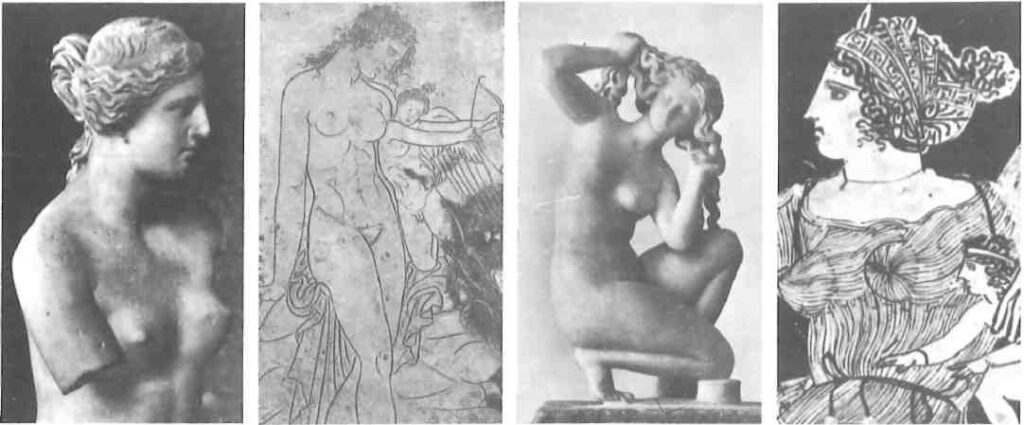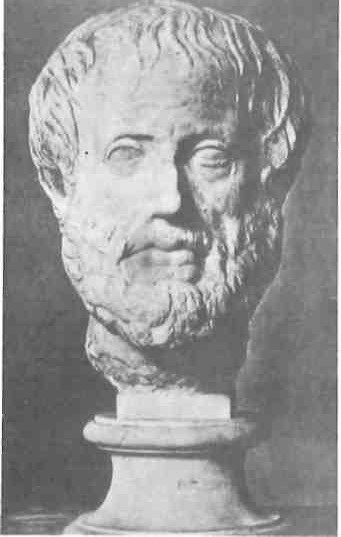IS YOUR nose broad at the tip? Is it thick? If so, it may signal laziness as in cattle, or dullness as in swine. If it is blunt, you may well be as proud as a lion. So theorized the ancient Greeks who were given to analyzing physical features and explaining personal traits in terms of facial characteristics. A fleshy face was thought to indicate laziness, a bony face cowardice, and a gaunt face assiduousness. As for the eyes, pendulous and baggy lower lids were signs of an imbiber, small eyes a mean soul, and large eyes, lethargy. Indeed, the ancients attached considerable significance to features which they idealized on vases, frescoes and sculptures. (It is unlikely that many Greeks possessed the ideal-type, symmetrical, ‘classic’ nose. Aristotle’s, in fact, was said to have been ‘aquiline’, and Socrates’s ‘broad with wide open nostrils’. Only Plato was reputed to have had a nose of ‘fine shape’.)


Although drawing conclusions about personalities on the basis of physiognomy persists today, manifesting itself in such expressions as ‘beady eyed’, ‘mean mouthed’, and ‘slack jawed’ to name a few, it is no longer taken seriously. Physical appearance, however, continues to preoccupy people and to play an important role in society. With the refinement of techniques, plastic surgery, which has existed in one form or another for centuries, can now repair disfigurement that is the result of birth or accident, correct features that are unattractive or simply distressing to an individual, and erase many of the ravages of time in an era when life expectancy has been greatly extended by advances in other areas of science. Indeed, with affluence on the rise, the highly skilled expertise of plastic surgeons is increasingly in demand throughout the world and Greece is no exception. There are twenty-five plastic surgeons practising in Athens and two in Thessaloniki, all of them having completed all or part of their medical training abroad. Four years of general surgery and three years of plastic surgery are required before entering practise in this area of medicine which demands highly trained hands and eyes, and skilled techniques. Greece’s plastic surgeons divide their time between reconstructive work — an effort to restore the normal — and aesthetic work — an attempt to surpass the normal. The majority of their patients, approximately eighty per cent, are women, but there is a growing interest among men in improving their appearance.
The most unusual and controversial operation performed by plastic surgeons, one that the layman does not readily associate with this specialized area of medicine, is the sex change operation. There are one hundred and fifty known transsexuals in Athens, most of whom underwent surgery in Casablanca. Twenty-five, however, received their new gender under the skillful technique of Dr. John Zambacos of Kolonaki. ‘Men become quite beautiful women,’ he says. ‘It’s a rather simple operation, with the most obvious scar found on the neck because of the male larynx.’ Two of the doctor’s patients, both professionals in the medical field, are now married. Another patient who was formerly a woman is today a sailor in the Greek Navy. ‘But female to male operations are much more difficult because ot the penis,’ says Dr. Zambacos, who works with a team of specialists — a gynecologist, urologist, endocrinologist and psychiatrist — before operating. Some plastic surgeons consider the transsexual operation an ethical-legal problem which they will not undertake, but they agree that transsexuals need intensive psychiatric therapy because their problems stem from environment rather than chemical imbalance.
Commonplace requests for simple aesthetic operations also require consultation, however. A plastic surgeon, long-skilled in identifying danger signals, may recommend a psychiatrist to patients who, for example, believe they can improve their abilities or personalities by altering a nose or chin. Such a patient must be redirected. The surgeon listens for key questions from prospective patients. A wish to identify one’s looks with someone famous suggests that the patient is disturbed with his self-image and will not be able to accept an aesthetic alteration. A young man who visited a Greek surgeon with a photograph of John F. Kennedy in tow explained that he wanted a forehead like the late President ‘so that I can also become a great man’. The boy was accompanied by his father who seemed to consider the request reasonable. The doctor recommended that both see a psychiatrist.
The majority of patients who visit plastic surgeons, however, have a healthy desire to improve their appearance. The most common requests for cosmetic operations are related to the nose (rhinoplasty), eyelids (blepharoplasty), face-lifting (rhytidectomy), breast augmentation or reduction (mammoplasty) and the reshaping of the abdomen and buttocks (lipectomy). The surgeon carefully examines two facets before operating: the patient’s general health and the quality of the skin. Thick, oily skin on the nose, for example, reduces the chances of success, while fragile skin may tear during face-lifting.


Doctors differ in minor aspects. Dr. Panayiotis Kolliopoulos, a graduate of Washington University in St. Louis, Missouri, thinks a feature change after thirty-five may be traumatic. Dr. John Zambacos, educated and trained in England and France, considers it normal at any age. Both agree that the surgeon’s satisfaction derives from the creation of something beautiful and the happiness it brings to the patient. Says Dr. Zambacos, Ί often think of Sir Harold Gillies’ comment, the father of plastic surgery. In his book, The Principles and Art of Plastic Surgery, Gillies wrote, “Often when lifting a face I have had a feeling of guilt that I am merely making money and yet, to see the lasting pleasure that often follows makes one wonder who we are to refuse a patient.”
Some women seek a face-lift in the belief that the change will revive a straying husband’s interest, and try to be cryptic about their operation. The surgeon, however, usually insists on seeing both husband and wife together before proceeding.
Although among many groups abroad today a face-lift is openly discussed and more and more accepted as a matter of course, this is not usually so here in Greece where women tend to be discreet about such things. There are three types of lifts. The mini face-lift usually involves a slight raising of the skin from the temple area. The second type involves the eyelids (which are usually operated on first) and a lifting of the facial skin from the temples and behind the ears. Finally, there is a complete face-lift which includes raising the skin around the neck. These operations last from one to two hours. A patient may return to normal life within a few days, but eyes will remain black for five to^ seven days. The results of face-lifts last from three to five years and one can have three in a lifetime. Dr. Zambacos, who maintains a woman on his staff to wash and comb the patients’ hair in his office before the final stitches are removed on the eighth day, warns his patients that their skin will age prematurely from sun exposure, but his advice is rarely heeded.
Severe skin problems, often the result of scarring from acne, are commonly treated by plastic surgeons. Dermabrasion, the procedure for correcting such damage, involves removing the outer skin layers with either chemicals or by mechanically rubbing it off with sandpaper. A surgeon can promise only a seventy percent improvement in most cases, however, especially if there are deep acne scars. A follow-up operation may produce another fifteen percent improvement but caution is the byword, especially if the chemical method is used since it produces first or second degree burns.
Fine wrinkles, especially around the mouth area, can also be erased with this method.



Many Athenian surgeons operate on visitors from abroad who come to Greece to combine surgery with a vacation in the sun. Aesthetic surgery costs approximately half of what it does in most countries. Furthermore, the waiting period for scheduling an operation is a week at the most. Patients travel to Greece from Australia, Canada, the United States and the Middle East although wealthy Arabs and Israelis consider England the mecca for aesthetic surgery. Interestingly enough, some of the finest plastic surgery today is performed in Brazil. Other centres are in Mexico, the United States, England, France and the Scandinavian countries.
A plastic surgeon, Dr. Kolliopoulos notes, must be more delicate than a painter in certain operations. Art must supercede technique in facial alterations, while technique dominates in other cases. Dr. Kolliopoulos says, ‘the difference between a good plastic surgeon and a great one is the training.’ In mammoplasty and lipectomy, technique is the key. Greek women tend to require more reduction mammoplasty than augmentation, because of overall heaviness. The lipectomy or apronectomy involves removal of excess fat and the reshaping of the abdominal wall of skin. In the era of the bikini it is frequently performed on women to reshape muscles and correct the appearance of the ‘tummy’ after pregnancy. A patient will often have her buttocks lifted concurrently, a fairly simple but highly skilled operation. Other operations include drawing excess skin from the thighs and upper arms. Aging, wrinkled hands can be operated on, but presumably only compelling professional reasons would warrant it since the patient must be prepared to live with obvious frontal wrist scars. None of the doctors to whom I spoke will try to correct cellulitis, inflammation of cellular tissue, which almost always recurs.
Hair transplant is increasingly popular, particularly among men. (Doctors will not operate on women unless they are first treated with tranquilizers or other drugs: apparently most women lose their hair because of anxiety but it will often grow back. Males, however, shed their locks as the result of inherited traits.) There are two modus operandi for hair transplants. One is transferring flaps of hair from the sides or back of the skull to the front, creating a new hairline. The other method is to transfer small skin grafts, with hair follicles attached, from one part of the head to the bald area. Usually twenty to thirty skin grafts will launch a beautiful new head on Samson or a similar facsimile. The operation is performed in two to three sessions under local anesthetic and it takes approximately six months for hair to grow.
As society and technology progress, request for plastic surgery will multiply. Continual research, particularly in the United States, Sweden and Denmark, improves surgical method and facilitates procedures. Then, too, doctors believe that ever-increasing pressure and competition in life will cause people to seek out their help in improving their self-image. Says Dr. Kolliopoulos, ‘Our society will require us to look younger and better, and to turn to plastic surgeons as one very viable answer.’
Certainly a burgeoning number of people here and abroad are turning to plastic surgeons. Men with small ears, the ancients claimed, have the dispositions of monkeys, those with large ears, the dispositions of asses. Thin noses that curve to the right indicate impudence while those strongly aquiline and clearly demarcated from the forehead are evidence of a proud personality. Contemporary Greeks are one up on their ancestors, however: they are able to outwit such characterizations, and perhaps reverse the process.







